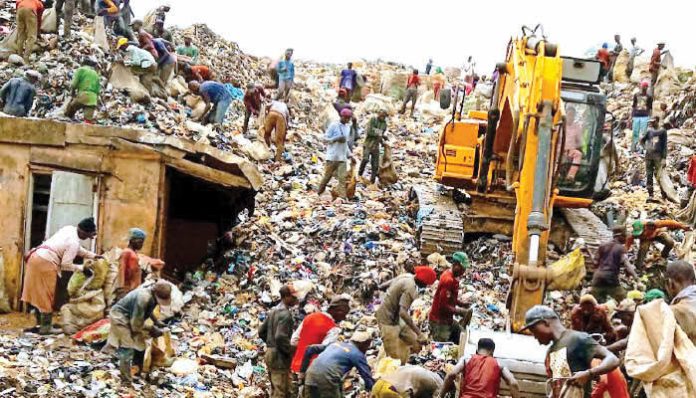News Investigators/ The Lagos State Government says it will adopt a waste-to-energy strategy as part of efforts to reduce the volume of waste ending up at landfill sites across the state.
The Commissioner for the Environment and Water Resources, Tokunbo Wahab, made this known in a statement issued and signed by the Director Public Affairs, Ministry of Environment, Mr Kunle Adeshina, on Wednesday.
Mr Wahab said the new waste-to-energy project would convert municipal solid waste into electricity, thereby enhancing energy security and supporting environmental sustainability.
According to him, the initiative forms part of the state’s long-term climate resilience and infrastructure development plans.
He noted that the state currently faces major waste management challenges, including landfill sites operating at nearly 80 per cent capacity, 63 per cent formal waste collection coverage, and illegal dumping by over 67 per cent of households.
“These challenges contribute significantly to drainage blockages and flooding during extreme weather events,” Wahab said.
He stated that the waste-to-energy plant would offer a 12 per cent Internal Rate of Return over a 20-year operating period, supported by electricity sales and the implementation of a tipping fee.
Mr Wahab said the project, to be sited in Epe, would require a capital investment of approximately $400 million.
He added that the project could generate clean energy for up to two million residents.
“The initiative is designed with a carbon-conscious facility model and will help prevent flooding, improve landfill conditions, and reduce solid waste in densely populated areas.
“The state is increasingly vulnerable to climate-related risks, warning that by 2050, most parts of Lagos may face extreme heat, and over 65 per cent of the population could be impacted by flooding,” he said.
The commissioner also disclosed plans for an Early Warning System to help residents prepare for severe weather conditions.
He said the system would provide disaster risk management data and help protect lives and infrastructure.
Mr Wahab said the project would be implemented through a private sector-led design, build, finance, and operate model with minimal government involvement.
He described the project as scalable and self-amortising, with strong revenue potential and relevance to growing markets for disaster resilience.
NAN

